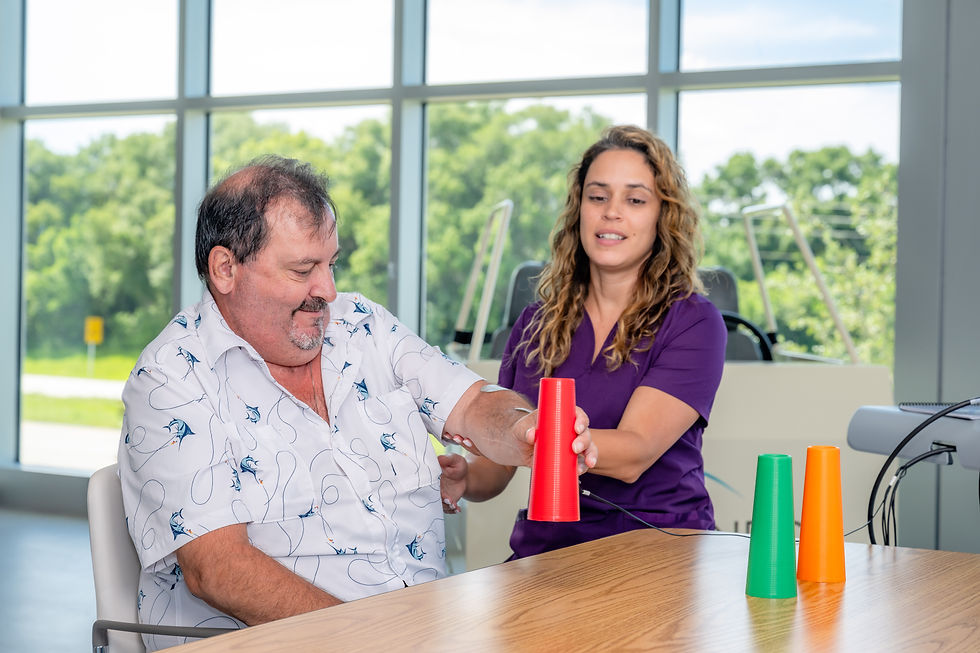The Benefits of Speech-Language Therapy
- Tulsa Rehab Hospital
- May 28, 2024
- 2 min read

Speech-language therapy is an essential form of rehabilitation therapy. After all, maintaining the ability to communicate effectively is important to everyone’s life. What is speech-language therapy? Contrary to popular belief, it doesn’t focus only on helping people speak clearly. Speech-language therapy helps improve cognition, communication and swallowing.
What types of conditions benefit from speech-language therapy?
Because speech therapy supports people’s ability to communicate clearly and understand language, many conditions can benefit from speech-language therapy. Therapy. Our rehab team will formulate a personalized plan of care that takes all your medical needs and goals into consideration. Some conditions that can benefit from speech therapy include:
Stroke
Brain injury
Dysphagia
Aphasia
Apraxia
Dysarthria
Dementia
Parkinson’s disease
Multiple sclerosis
Amyotrophic lateral sclerosis
Trouble eating and drinking
Hearing loss
How does speech therapy help?
When people are recovering in an inpatient rehabilitation hospital, speech-language therapy can help them regain the ability to communicate, process information or eat and drink. Here are several ways speech-language pathologists (SLPs) can help:
Improve communication – People may have trouble communicating after stroke, brain injury, or other condition. SLPs can help people’s ability to speak through vocal exercises. They can also help reinforce effective reading, comprehension, articulation and voice.
Cognition and memory management – SLPs can help patients improve their memory, cognitive ability and ability to problem-solve.
Improve swallowing – Speech therapy can help strengthen the muscles in the lips, tongue, mouth and throat to solve difficulties associated with swallowing and chewing.
Prevent choking and weight loss – When people struggle with swallowing or chewing, this can lead to choking or weight loss. Speech therapy can help prevent this.
If you need intensive medical rehab, consider Tulsa Rehabilitation Hospital. Our team of therapists will address your unique needs and create a comprehensive rehab plan of care to help you reach your goals. Learn more about medical rehab on our website.











